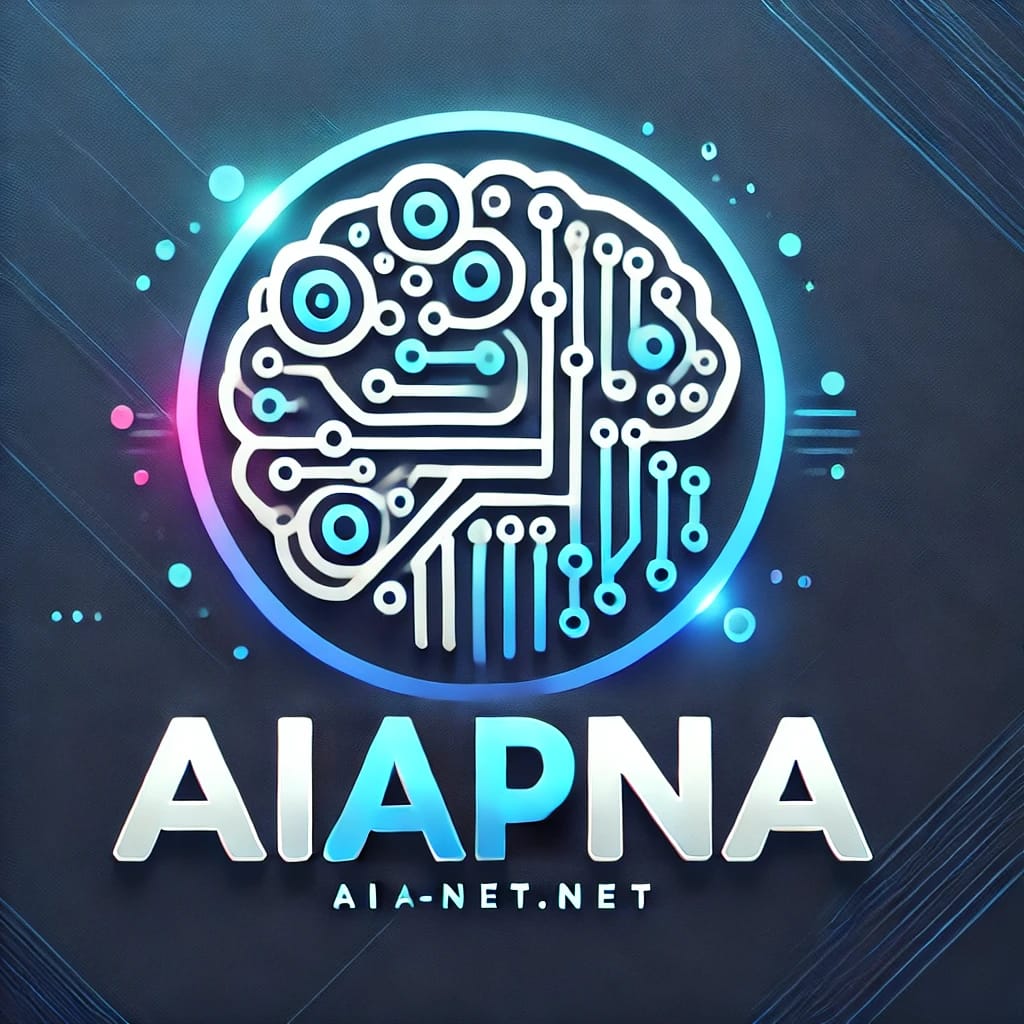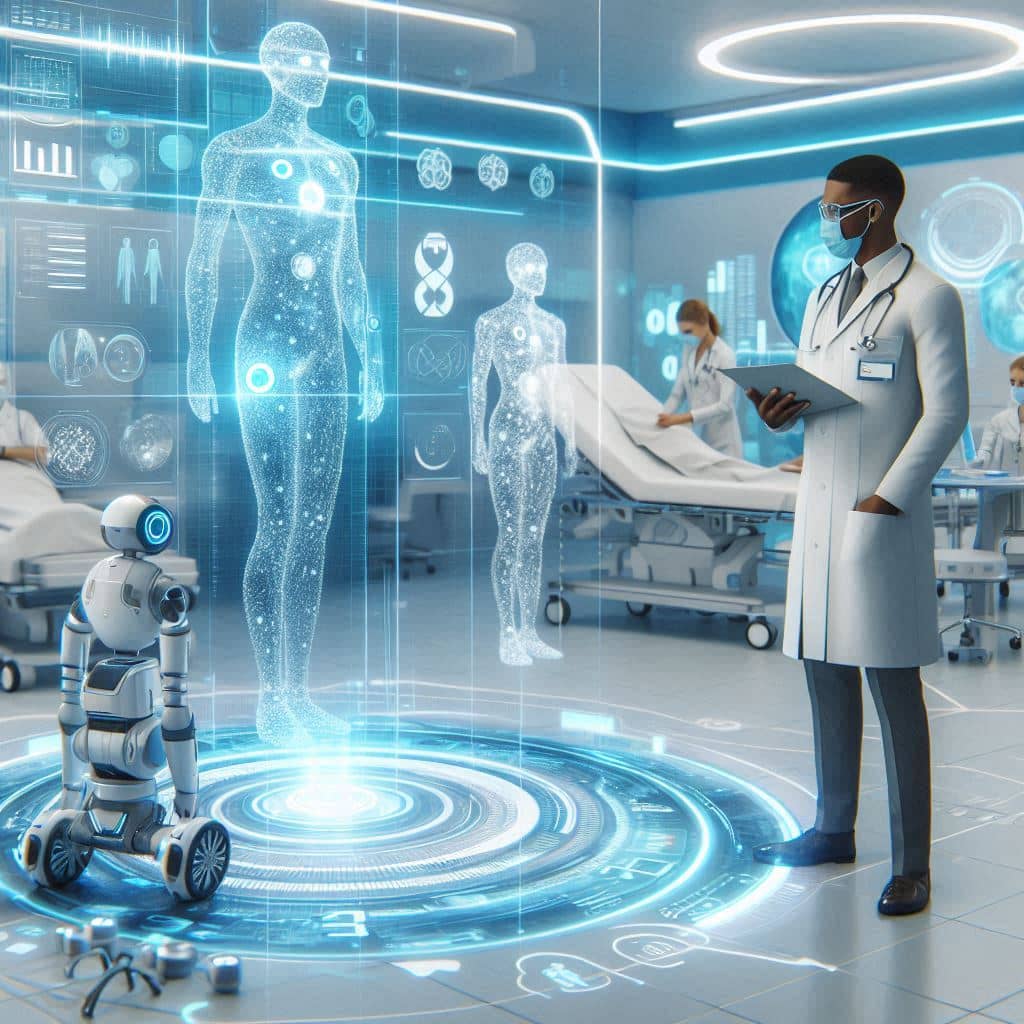Introduction:
Artificial intelligence is no longer a futuristic concept—it’s here, and it’s transforming the healthcare industry in ways we could only imagine a few decades ago. From improving diagnostics to streamlining administrative tasks, AI is revolutionizing the medical world. In this article, we’ll explore 20 incredible benefits of AI in healthcare, showcasing how this technology is enhancing patient care, reducing costs, and saving lives. 20 Benefits of Artificial Intelligence in Healthcare: How AI is Transforming Medicine
READ ALSO AI in Climate Finance: How AI is Revolutionizing Green Investments and Sustainability
Enhanced Diagnostic Accuracy
AI-powered tools can analyze medical images, such as X-rays, MRIs, and CT scans, with remarkable precision. By detecting abnormalities that might be missed by the human eye, AI helps doctors make faster and more accurate diagnoses, leading to better patient outcomes

Early Disease Detection
AI algorithms can identify patterns in patient data to predict diseases like cancer, diabetes, and heart conditions at an early stage. Early detection allows for timely intervention, significantly improving the chances of successful treatment.
Personalized Treatment Plans
AI analyzes patient data, including genetics, lifestyle, and medical history, to create tailored treatment plans. This personalized approach ensures that patients receive the most effective care for their unique needs
Improved Drug Development
Developing new drugs is a time-consuming and expensive process. AI accelerates drug discovery by analyzing vast amounts of data to identify potential compounds, predict their effectiveness, and streamline clinical trials.
Reduced Administrative Burden
AI automates repetitive administrative tasks, such as scheduling appointments, managing medical records, and processing insurance claims. This reduces the workload on healthcare staff, allowing them to focus more on patient care.
Predictive Analytics for Patient Care
AI uses predictive analytics to forecast patient outcomes, such as the likelihood of readmission or complications. This enables healthcare providers to take proactive measures to prevent adverse events.
Virtual Health Assistants
AI-powered virtual assistants provide patients with 24/7 support, answering questions, reminding them to take medications, and even offering basic medical advice. This improves patient engagement and adherence to treatment plans.
Streamlined Medical Imaging
AI enhances medical imaging by reducing noise, improving image quality, and highlighting areas of concern. This not only speeds up the diagnostic process but also reduces the need for repeat scans.
Cost Reduction
By automating tasks, improving efficiency, and reducing errors, AI helps healthcare providers cut costs. These savings can be passed on to patients, making healthcare more affordable.
Improved Patient Monitoring
Wearable devices and AI-powered monitoring systems track vital signs in real-time, alerting healthcare providers to any concerning changes. This is especially beneficial for patients with chronic conditions.
Enhanced Surgical Precision
AI-assisted robotic surgery allows for greater precision, minimizing the risk of complications and speeding up recovery times. Surgeons can perform complex procedures with enhanced accuracy.
Better Mental Health Support
AI-driven chatbots and apps provide mental health support by offering therapy, monitoring mood changes, and identifying signs of depression or anxiety. This makes mental health care more accessible.
Faster Emergency Response
AI analyzes data from emergency calls and hospital systems to prioritize cases and allocate resources efficiently. This ensures that critical patients receive immediate attention.
Improved Clinical Decision-Making
AI provides healthcare professionals with evidence-based recommendations, helping them make informed decisions about patient care. This reduces the risk of errors and improves treatment outcomes.
Efficient Medical Research
AI sifts through vast amounts of research data to identify trends, correlations, and potential breakthroughs. This accelerates medical research and helps scientists develop innovative treatments.
Enhanced Patient Engagement
AI-powered apps and platforms educate patients about their conditions, treatment options, and lifestyle changes. This empowers patients to take an active role in their healthcare journey.
Reduced Medical Errors
AI minimizes human errors in diagnosis, treatment, and medication administration. By cross-referencing patient data and providing alerts, AI ensures safer healthcare practices.
Improved Population Health Management
AI analyzes data from entire populations to identify health trends, risk factors, and areas needing intervention. This helps public health officials design targeted programs to improve community health.
Remote Patient Monitoring
AI enables healthcare providers to monitor patients remotely, reducing the need for frequent hospital visits. This is particularly beneficial for elderly patients and those in rural areas.
Scalability of Healthcare Services
AI makes it possible to scale healthcare services efficiently, ensuring that even underserved populations have access to quality care. This is a game-changer for global health equity.
Conclusion
Artificial intelligence is not just a technological advancement—it’s a healthcare revolution. By improving diagnostics, personalizing treatments, reducing costs, and enhancing patient care, AI is reshaping the medical world for the better. As this technology continues to evolve, its potential to save lives and improve health outcomes is limitless. Embracing AI in healthcare is no longer an option; it’s a necessity for a healthier, brighter future.
20 Benefits of Artificial Intelligence in Healthcare: How AI is Transforming Medicine
FAQ
1. What is artificial intelligence (AI) in healthcare?
AI in healthcare refers to the use of machine learning algorithms, data analytics, and other AI technologies to improve medical diagnosis, treatment, and patient care. It helps doctors make better decisions, reduces errors, and enhances efficiency.
2. How does AI improve diagnostics?
AI can analyze medical images (like X-rays, MRIs) and patient data faster and more accurately than humans. It helps detect diseases like cancer, heart conditions, and neurological disorders at early stages.
3. Can AI replace doctors?
No, AI is not meant to replace doctors but to assist them. It provides tools and insights that help healthcare professionals make better decisions and improve patient outcomes.
4. What are the risks of using AI in healthcare?
Some risks include data privacy concerns, potential biases in AI algorithms, and over-reliance on technology. However, with proper regulations and ethical guidelines, these risks can be minimized.
5. How does AI help in drug discovery?
AI speeds up the drug discovery process by analyzing vast amounts of chemical and biological data. It identifies potential drug candidates and predicts their effectiveness, reducing the time and cost of development.
6. Is AI in healthcare expensive?
While implementing AI can have upfront costs, it ultimately reduces healthcare expenses by improving efficiency, reducing errors, and enabling early disease detection.
7. How does AI support mental health?
AI-powered tools offer mental health assessments, therapy sessions, and crisis intervention. They make mental healthcare more accessible and provide support to those who may not have access to traditional therapy.
8. What is robotic surgery, and how does AI help?
Robotic surgery involves using AI-assisted robots to perform minimally invasive procedures with high precision. AI helps guide the robots, reducing the risk of complications and improving recovery times.
9. Can AI help in managing chronic diseases?
Yes, AI tools can monitor patients with chronic conditions like diabetes and heart disease in real-time. They provide insights and recommendations to help manage these conditions effectively.
10. How is AI used in telemedicine?
AI enhances telemedicine by improving virtual consultations, analyzing patient data remotely, and providing diagnostic support. It makes healthcare more accessible, especially in rural or underserved areas.

